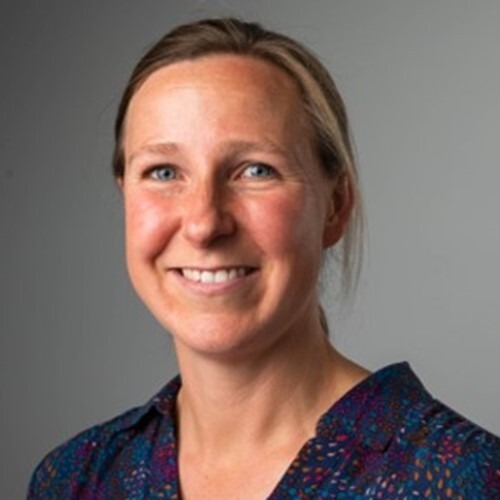Jane Masoli
Current Position: Senior Clinical Research Fellow and Consultant Geriatrician
Research Field: Cardiovascular Frailty and Multiple Long-Term Conditions.
Why did you decide to undertake clinical academic training and what pathway have you taken so far?
Clinical Academic Training as a formal pathway was relatively new when I applied for an Academic Clinical Fellowship, particularly in the South West. I was grateful to a senior colleague who signposted it and developed a role in ageing, knowing I was research active: I have been successfully NIHR funded for my research on cardiovascular frailty since then, through the NIHR Integrated Academic Training pathway and personal NIHR fellowships.

Why did you choose to conduct your clinical academic training at the University of Exeter and what are some of the highlights?
The University of Exeter provides an exceptional training environment with potential for collaboration and mentorship from internationally renowned but approachable researchers who have excellent teams and networks. I have valued the synergy of working collaboratively with non-clinicians and the opportunity for career development. There is growing evidence of support for clinical academics with new opportunities such as through the Exeter NIHR Biomedical Research Centre. The NIHR training centre also provides opportunities for training and professional development.
What challenges have you faced during your clinical academic training and how have you overcome these?
Clinical Academic Training can be a challenging path. It is a highly competitive career pathway that necessitates upskill and acquiring expertise in areas that can feel quite distinct from clinical practice. Navigating the pathway can introduce challenge, for example how it fits with clinical training, finding the right research environment/team/supervision, logistics and applying for next steps funding. I have found seeking strong mentorship and peer-peer support really important, as well as being clear in communication with all involved.
What impact has clinical academic training had on your career and what are your next steps?
Clinical Academic Training has injected variety into my career. I still love clinical medicine, but being a clinical academic means that I can take that clinical experience and build research studies to underpin what we do clinically and to develop research to inform clinical guidelines and best patient care.
Traditionally the patients who I look after clinically have often been excluded from research, for example due to co-morbidity, frailty or cognition and it’s really fulfilling to add to the developing evidence base, working with networks nationally and internationally.
My NIHR Advanced Fellowship and aligned research is focussed on cardiovascular frailty and multimorbidity.
What advice would you give to an aspiring clinical academic?
Find a research area that you feel sufficiently interested and dedicated to drive forward – it doesn’t need to be the first research area you try. Strong mentorship is really important within and external to your field. To succeed you’ll need to be committed and build resilience as there will be knockbacks, use these to improve your science and drive professional development.
A clinical academic career can provide variety and help to maintain professional energy alongside clinical work.



